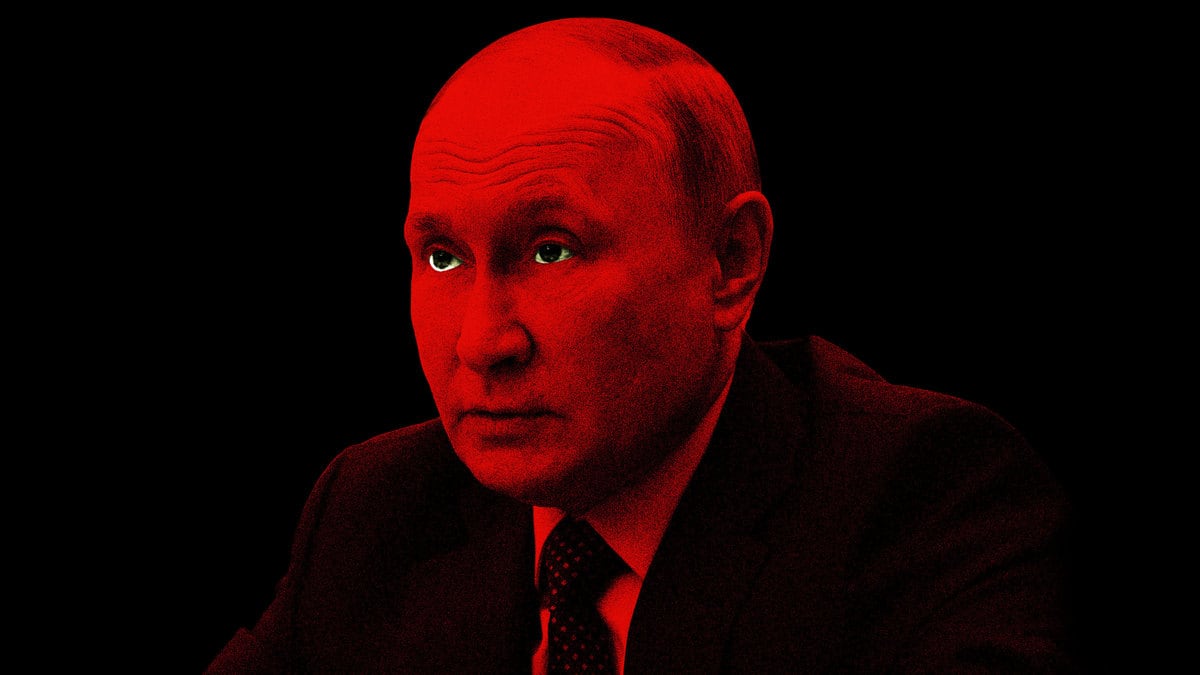After a series of military failures and the near complete abandonment of Kharkiv, Vladimir Putin announced last week a partial mobilization that will raise 300,000 soldiers. His statement followed a move on the part of the Donbas separatists to hold a referendum on their joining Russia, perhaps granting them protection under Moscow’s nuclear umbrella.
None of this should be a surprise.
Even before the war began in February, Putin invested too much into the conflict with Ukraine. With the clock running out on his window of opportunity, he chose war. Regardless of how badly the war turned out for Putin, his fundamental choice—to escalate or back down—remained the same. Putin placed himself in a position where he could not afford to back down, or else he might lose everything. That left him with only one option: escalate when the war goes badly. All else follows.
Since defeat is not an option for the Russian leader, the main strategic problem for NATO and Ukraine to solve must be how to prepare for, manage, and secure a Ukrainian victory.
After being denied a quick end to the war, Russian military forces launched targeted strikes against civilians, schools, and hospitals. Discussions about the potential use of chemical and nuclear weapons briefly seized the political zeitgeist. As the prospect of Russian defeat seemed possible in March following Ukraine’s successful defense of Kyiv, observers of the conflict were left wondering just how dirty the war in Ukraine could become.
When the war dragged on, speculation about the potential end of the war took hold among pundits and scholars. Some of their daydreams were filled with optimism and hope that a Russian defeat would be relatively painless for everyone but Moscow, but the endgame most wished for was never the one we were likely to get.
Unfortunately, some were already aware of the many ways the war could change and worsen. We knew about the possibility of mobilization. We knew about the potential for Russia to annex the territory it possessed. We knew that Ukraine could threaten to bring the war into the Donbas. And we knew this could lead Russia to adopt a wartime footing. And, lastly, we knew that the use of nuclear weapons was never completely off the table.
All this we knew could happen.
We need to be careful when it looks like Russia is about to be defeated—it may well be a precursor to further escalation. There is no point trying to see the end of this war when there are still ways Putin could make it worse.
Indeed, when Russia again looked like it was going to be defeated, Putin still had a number of cards to play. He played some of them on Wednesday.
Those hopeful earlier this month that the war would have an early end with a victorious Ukraine were disappointed, but fear regarding the near-term use of nuclear weapons, for now, remains overblown.
Fresh and plentiful manpower from the mobilization, however reluctant they are, will give Putin some leverage in the conflict. The questions to ask now are what the mobilization will look like and how quickly it can be realized. There are always unknowns in conflict, and it will take months before the mobilization comes into full effect. What the Russian mobilization actually means remains uncertain. It is easy enough to announce a thing, but making it happen is difficult.
At the risk of stating the obvious: the Russian invasion of Ukraine is becoming more dangerous. Perhaps nearly as dangerous as a Russian comeback is a further Russian defeat.
The specter of Douglas MacArthur looms large over the Ukrainian push to the East. Even if the Kremlin does succeed in putting warm bodies on the front, there is no guarantee that they will fight effectively against Ukraine’s armies. Russia could still fail to defend its territory, which would almost certainly increase the chance that a greater escalation may occur.
The reason why is simple: no one truly knows where Putin’s red lines are for nuclear escalation. Indeed, the Kremlin has nurtured that ambiguity in this conflict. The intent, near as far as can be gathered, is that the less their adversaries know, the more careful those adversaries will be when they push the Russians back.
It’s unclear whether they will defend their captured territory in the Donbas with nuclear weapons. Scholars, researchers, pundits, and policymakers disagree with one another. The most risk averse will want to avoid any further poking at the Russian bear, while those who are risk tolerant may suggest that Ukraine could take back everything they’ve lost with minimal concern.
Because we do not know where the line is, or if it even exists, the conclusion of Russia’s war in Ukraine, whenever that may be, will be conducted under the shadow of possible nuclear war.
Even so, there is a silver lining: Putin is showing weakness. The mobilization order is not a sign of strength. The annexation of the Donbas and elsewhere is the desperate act of an insecure regime.
Putin wants all of us to believe that the territory his armies seized will be under his nuclear umbrella. Not everyone is going to believe him.
Putin says he is not bluffing. Perhaps that is true and his statements are just as deadly as he intends, but even so Putin’s words and actions give off the impression of a cornered animal.
In short, Ukraine is winning and Putin is getting desperate.
Now we can only speculate at what his desperation will mean for the future of the war.







